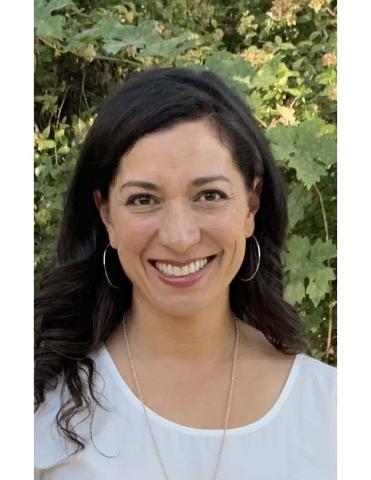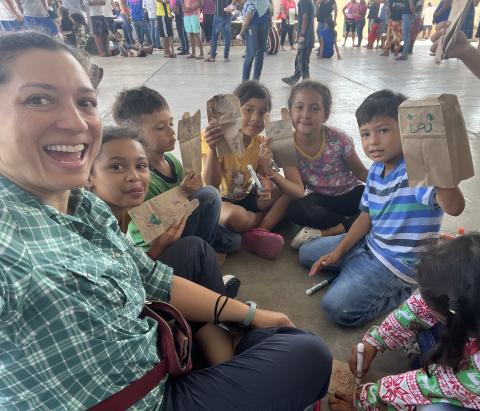
Dr. Sita Patel: Advancing Global Mental Health Through Community-Based Research

Dr. Sita Patel
For Dr. Sita Patel, Professor of Clinical Psychology at PAU, the intersection of global mental health and immigrant experiences is deeply personal. "I think I first became interested in this work because my family members were forced to migrate," she explains. "My family was originally from India and migrated to Africa before arriving in the U.S.. Seeing the life trajectories of my relatives who were forced to leave conflict-affected areas really impacted my own life path and my research interests."
This personal connection has informed Dr. Patel's pioneering research in immigrant mental health, work that has recently contributed to the American Psychological Association's groundbreaking resolution supporting a population health-based approach to working with immigrants. As a key researcher for the APA's recent report titled, Psychological Science and Immigration Today, Dr. Patel's work helps illuminate the complex interplay between mental health, cultural contexts, and immigrant experiences.
Her research employs a mixed-methods approach that prioritizes participants’ voices. "The idea with mixed methods is that in order to ask quantitative questions, you have to know, on some level, what you are looking for…but qualitative work can often help to generate completely new ideas and information," Dr. Patel notes. "With immigrant populations in particular, I think a mixed-methods approach also helps to elevate and center the experiences of the population more fully in the research."
Through her Culture, Community & Global Mental Health research lab at PAU, Dr. Patel mentors the next generation of researchers while conducting groundbreaking studies. "Training future researchers is one of my favorite parts of this job," she says. "I work together with my students to help them feel empowered to pursue their own research interests." One of the lab’s current projects includes evaluating programs like the Soccer Without Borders program at both a local school in Oakland and internationally in Nicaragua.
Dr. Patel's previous work in the Central African Republic represents her commitment to global mental health research. In collaboration with former PAU Provost Dr. Bill Froming, she helped conduct the first mental health intervention research in the Central African Republic, a country affected by decades of conflict. "My role as part of the study was to understand how the local population understood trauma, peace, and mental health symptoms before an intervention could take place," she explains. "The crux of the study was that healing from trauma can also help reduce violence - the two can go hand-in-hand."
Her work emphasizes the importance of meeting communities where they are. "For immigrant, refugee, and asylum-seeking populations, one of the important things is that services are most accessible when they are brought to them," she notes. This philosophy has taken her from schools to border centers and temporary tent encampments, where she's found that even brief connections with service providers can be helpful for immigrant youth and parents alike.

Dr. Patel visits young children at an immigration center near the border.
Community partnerships play a crucial role in Dr. Patel's research approach. Her collaboration with Dr. Alfonso Mercado and Sister Norma Pimentel at the border illustrated the complex interplay between immediate needs and mental health support. "My take on community partnerships is that researchers like myself can offer help in answering questions chosen by those communities and partner organizations," she explains. This approach has led to successful partnerships with organizations like the Center for Survivors of Torture in San Jose, where her research helped to evaluate and improve services.
As the field of global mental health continues to evolve, Dr. Patel's work exemplifies the importance of culturally responsive, community-based approaches. Her research not only advances our understanding of immigrant mental health but also helps shape policies and practices that better serve these communities. Through her work at PAU and beyond, she continues to bridge the gap between research and real-world impact, always keeping the voices and experiences of immigrant communities at the center of her work.
